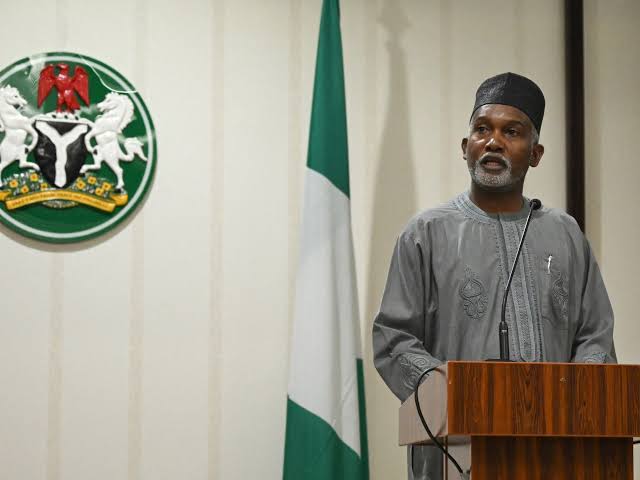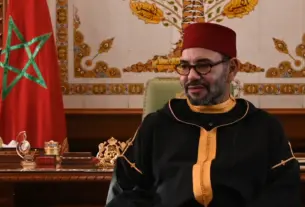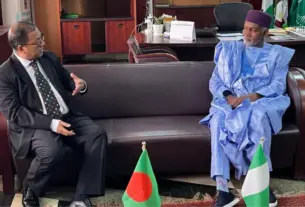Yusuf Tuggar Minister of Foreign Affairs has said that Nigeria is presently making moves to join BRICS and would not given up on its ambition of becoming a permanent member of the Security Council of the United Nations.
BRICS, an intergovernmental organization comprising Brazil, Russia, India, China, South Africa, Egypt, Ethiopia, Iran, and the United Arab Emirates. Originally identified to highlight investment opportunities, the grouping evolved into a cohesive geopolitical bloc, with their governments meeting annually at formal summits and coordinating multilateral policies since 2009. Bilateral relations among BRICS are conducted mainly on the basis of non-interference, equality, and mutual benefit.
The Nigerian Minister made the disclosure on Wednesday during an official visit to Russia, saying Nigeria appreciates the Russian Federation’s immense support and solidarity with the Nigerian government under President Bola Ahmed Tinubu, noting that the country is exploring the possibility of joining BRICS and seeking to become a permanent member of the United Nations Security Council as part of efforts to ensure that Nigeria and Africa are represented at the highest levels of global decision-making.
Amb. Tuggar, while restating Nigeria’s commitment to diplomatic and economic ties with Russia, said Nigeria is commitment to strengthening diplomatic and bilateral relations with Russia.
The Nigerian Minister who met with the Minister of Foreign Affairs of the Russian Federation, Mr. Sergey Lavrov, said Nigeria and Russia have enjoyed cordial bilateral relations since establishing diplomatic ties on December 25, 1960. He also said both countries supported each other in their quests for elective positions in the United Nations specialized agencies and other international engagements.
He equally stressed the importance that Nigeria attaches to its relations with the Russian Federation and reaffirmed that Russia remains an important ally and a strategic partner for Nigeria, especially in the fight against terrorism.
He said that it was Russia’s turn to host the next session, and expressed Nigeria’s determination to conclude all outstanding bilateral agreements and a framework for deepening economic, cultural, and political ties for the mutual benefit of both countries.
The Minister also acknowledged Russia’s commitment towards facilitating the continued financing and execution of the Ajaokuta Steel Company Limited and the resuscitation of the Aluminium Smelting Company in Nigeria by AC Rusal. He postulated that Nigeria and Russia had agreed to cooperate in building nuclear power plants in Nigeria and that the Russia State Atomic Energy Corporation (ROSATOM) had signed the first Intergovernmental Agreement to cooperate in developing atomic energy for peaceful purposes in 2009 and further stated that Nigeria is interested in partnering Russia on renewable energy, particularly on the peaceful use of nuclear power.
The Minister highlighted the longstanding military and defence cooperation between Russia and Nigeria and appreciated the Russian Government’s support and assistance in intelligence sharing, which has aided the fight against terrorism and insurgency in Nigeria. He disclosed that military relations between Russia and Nigeria date back to the Soviet era while appreciating the support received during the Nigerian Civil War between 1967 and 1970.
He also sought Russia’s cooperation in education and acknowledged Russia’s support through scholarships to Nigerian students over the years, which he said had greatly benefitted not only Nigeria but humanity.





